
China’s C-Power Caught in a Frenzy of Revenge
As the terms of both the president and prime minister are limited to two terms, Xi Jinping, unable to advance a successor, has chosen to extend his own tenure.
Mao Zedong, the founding figure of the Chinese Communist Party and the People’s Republic of China, famously stated that political power comes from the barrel of a gun. Consequently, since the establishment of the People’s Republic of China in 1949, Mao ensured that the People’s Liberation Army (PLA) remained under the control of the Party rather than the state. As a result, the Central Military Commission (CMC) has always been chaired by the leader of the Chinese Communist Party (CCP).
Xi Jinping, Mao’s successor, is currently serving his third term as the President of China. In his capacity as the Chairman of the CMC after becoming President, he has worked to diminish the influence of the opposition within the Chinese military.
According to Hong Kong’s Ming Pao newspaper, China’s Defense Minister is currently missing. Just a few days ago, a prominent general from the newly established Rocket Force also disappeared, and the Foreign Minister vanished three months ago. The trajectory of this ongoing series of disappearances remains uncertain. Xi Jinping has emerged as a highly influential figure in this series of actions, which began in 2014 and 2015 when former CMC Vice Chairman Su Caihou and former PLA General Guo Boxiong were detained on corruption charges.
Xi has taken aim at retired leaders, thereby undermining the influence of former Chinese leader Jiang Zemin, who is believed to still have connections within the People’s Liberation Army. Joel Wuthnow, a senior fellow at the Pentagon-funded National Defense University, remarked, “The current series of targeting military and political figures in China is a game of dominance and elimination.”
President Xi has sent a clear message that anyone who resists can be detained and prosecuted at any time, as demonstrated by the sudden disappearances of the Minister of Defense and the Minister of Foreign Affairs. In 2015, Xi embarked on a comprehensive overhaul of the military’s structure, abolishing four military headquarters responsible for personnel, politics, logistics, and armaments, and replacing them with 15 smaller agencies. This move also involved increased surveillance of military officers.
Timothy Heath, a senior international defense researcher, noted, “Since financial auditors fall under the CMC, it’s not unusual to detain dissidents on corruption charges.” Even rising senior Chinese leader Sun Zhengcai, who was once considered a contender for central leadership, has now become anonymous.
Xi’s undisputed leadership and unparalleled abuse of power during his three terms leading the entire country may come to an end in another four years. When China conducts its next leadership transition in its secretive closed-door elections, it is unlikely that a new generation of leaders will immediately step forward. Many of the newer leaders who were perceived as unfriendly to President Xi, such as Sun, Wan, and Bo Xi, have abruptly lost their positions under questionable circumstances, clouded by corruption allegations. This situation could potentially lead to explosive consequences.
Sun, who was once considered a strong contender for a seat on China’s powerful seven-member party standing committee, faced a serious disciplinary violation investigation that ended his political career in the prominent city of Chongqing, led by the Chinese Communist Party. At that time, Sun was the youngest member of the party’s Politburo and was discussed as a possible successor to President Xi and Premier Li Keqiang during significant Chinese Communist Party meetings. The Politburo consists of 25 members, with only the most powerful seven-member Standing Committee holding a higher position in the government.
Resistance Emerges Across the Party
According to Hong Kong’s Ming Pao newspaper, Bo Xilai, a prominent and rising party leader in China’s renowned metropolis of Chongqing, was abruptly sentenced to death for corruption and the murder of a British businessman shortly after Xi became president. Bo was stripped of all his duties and his sentence was commuted to life imprisonment in 2013 on charges of murder and corruption. However, his current status has remained unknown since then. Subsequently, Sun Zheng Kai, another emerging senior Chinese leader who was seen as a potential challenger to Xi in central politics, faced similar targeting. Many senior military officers close to Sun Zheng, the influential leader who became a Politburo member, are still in service but are under surveillance.
Shortly afterward, Wan Khing Li Ang, another up-and-coming youth leader within the Chinese Communist Party, was accused of corruption. After the Party Disciplinary Commission announced the initiation of an investigation into “serious disciplinary violations,” Wan suddenly disappeared. Wan Guang Zhao, the youngest mayor seen as an emerging leader of the Chinese Communist Party, had gained respect for his austerity policies but was also targeted by the administration.
Two years after Xi came to power, Zhu Yong Kang, the former head of internal security affairs, was also arrested on corruption charges. He is considered a leader close to Bo Xi and a rival of Xi in Chinese politics. His current status remains unknown.
According to reports, after Xi’s appointment as president in 2012, anyone who reached a high position within the party, government, or the military was at risk of arrest due to Xi’s ongoing anti-corruption campaign. Even after securing a third term as president, Xi has arrested hundreds of potential competitors. Consequently, no reliable successor has emerged to assume power once the top leaders (President and Prime Minister) leave their positions.
In China, presidential and prime ministerial terms typically last for ten years, or two terms. However, Xi, who was unable to groom a successor, has extended his own term. According to the British media outlet BBC, there is a strong desire for leadership change within the Chinese Communist Party, but the process of transferring leadership is far from straightforward. Until the Chinese People’s Congress issues an official announcement, anything remains possible, and anyone could take the lead.
Joseph Fewsmith, an expert professor at Boston University, remarks, “Xi’s undisputed leadership and unparalleled abuse of power during his three terms leading the entire country may come to an end in another four years.” When China conducts its next leadership transition in the important closed-room elections, there is no possibility that a new generation of leaders will immediately step forward. Many of the newer leaders who were seen as unfriendly to President Xi, such as Sun, Wan, and Bo Xi, have abruptly lost their positions in a prejudicial manner, raising concerns of corruption and potential instability. President Xi is currently fostering political intrigue by doubting the loyalty of high-level officials in the political and military fronts, which could lead to counterproductive outcomes.
The anti-corruption campaign in Chinese politics has weakened C-wing political rivals and other factions. Members of the party’s powerful decision-making body, the Politburo and Standing Committee, have been the subject of criminal prosecutions and punishments. According to Neil Thomas, a senior China analyst with international recognition, Xi made deals with key figures when he assumed power, leading to the sidelining of old Communist Party leaders during Xi’s consolidation of power. More than 4.7 million Chinese citizens have become subjects of anti-corruption investigations, underscoring the depth of corruption within the communist regime. As this campaign continues, China’s security agencies are increasingly staffed with officials considered Xi’s confidants.
Billionaires Have Also Been Disappearing
Since Xi Jinping came to power in China, not only senior military officers and influential leaders but also many billionaires have disappeared. Recently, Bao Fan, a notable figure in the Chinese technology industry, vanished, adding to the list of billionaire businessmen who have gone missing. Before Bao Fan’s disappearance, reports indicated that Chinese authorities were investigating his business, but no government agency was officially disclosed as conducting the investigation.
Whether one likes it or not, China boasts a significant number of billionaires. Those who remember Mao Zedong’s belief that political power is acquired through the barrel of a gun may fear that Xi could gain power through his wealth. Notably, Jack Ma, another Chinese billionaire associated with Alibaba, disappeared for four months. Guo Guangchang, the founder of China’s Fosun Group, went missing for several days in 2015 following Xi’s policies aimed at increasing control over China’s economy. After it was revealed that Guo Guangchang owned an English Premier League club, the Xi administration placed him under surveillance. Two years after Guo Guangchang’s disappearance, a well-known Chinese businessman, even in the West, Chinese-Canadian businessman Xiao Jianhua, who claimed he was assisting the government’s investigation process, was arrested in a Hong Kong hotel.
Xiao Jianhua, one of China’s wealthiest businessmen, faced accusations related to his Hong Kong-centric business dealings and was later imprisoned for corruption. In March 2020, as China’s economy was affected by the COVID-19 pandemic, prominent Chinese real estate businessman Ren Zhiqiang disappeared after criticizing President Xi’s handling of the pandemic. He is now serving an 18-year prison sentence on corruption charges stemming from his critique of Xi.
Jack Ma, the founder of China’s successful business conglomerate Alibaba, also went missing following Ren Zhiqiang’s arrest. Jack Ma had been preparing to list Ant Financial on the Chinese stock market at the end of 2020, but the Chinese administration took control of the situation. Although Jack Ma has returned to public life after nearly two years, the exact reasons for his disappearance remain undisclosed.
Regardless of personal preferences, China boasts a significant population of billionaires. Some may speculate that those who adhere to Mao Zedong’s belief that political power is obtained through the barrel of a gun may be alarmed by the potential for Xi to consolidate power through wealth. As a result, China’s billionaire businessmen and politically promising individuals may mysteriously face targeting one after another. The recent disappearance of the defense minister or the former foreign minister is a part of this larger narrative.

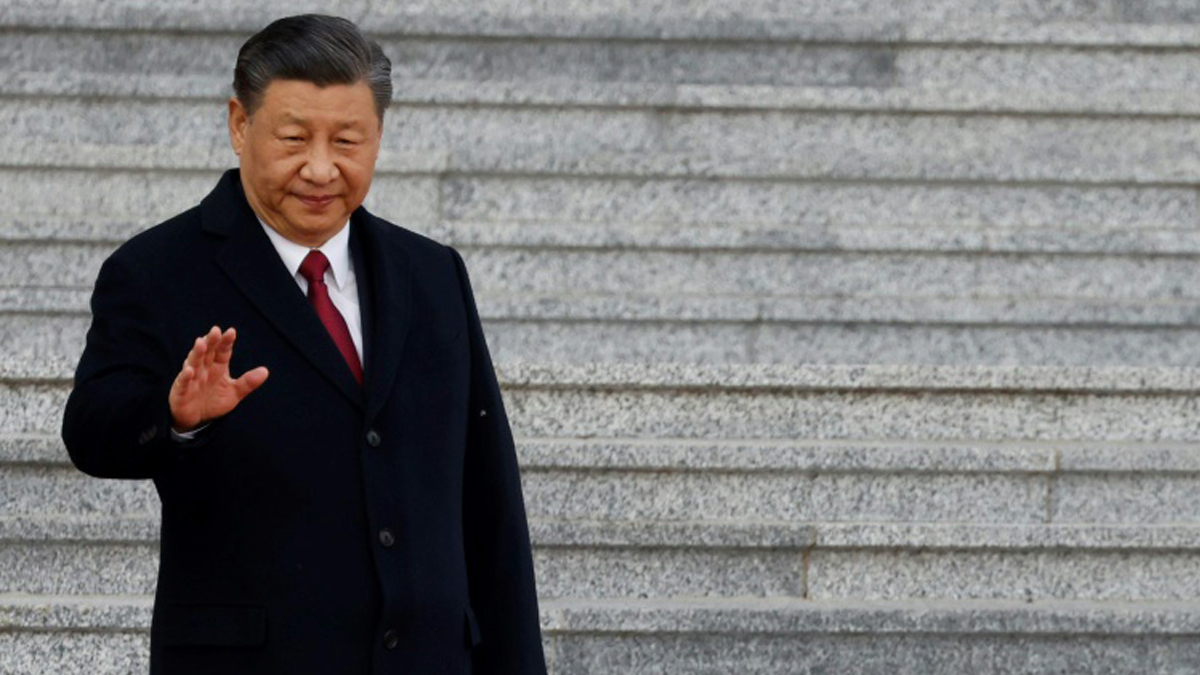


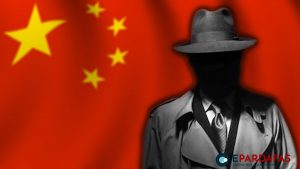
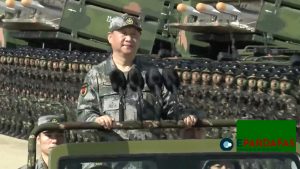
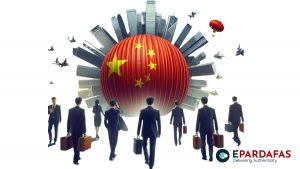




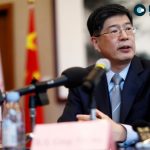
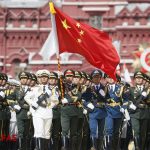



Comments